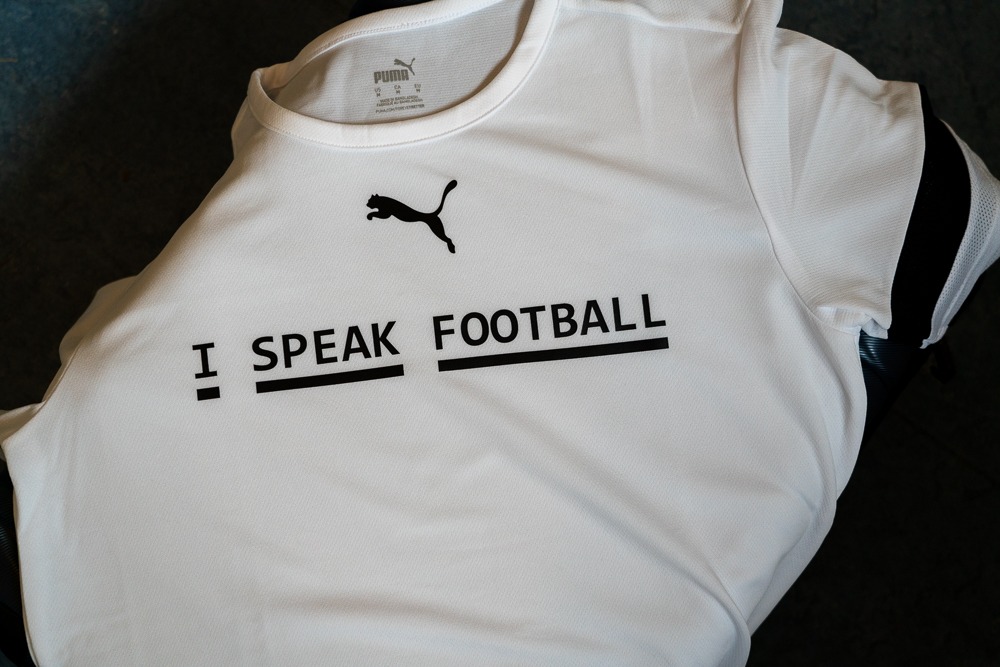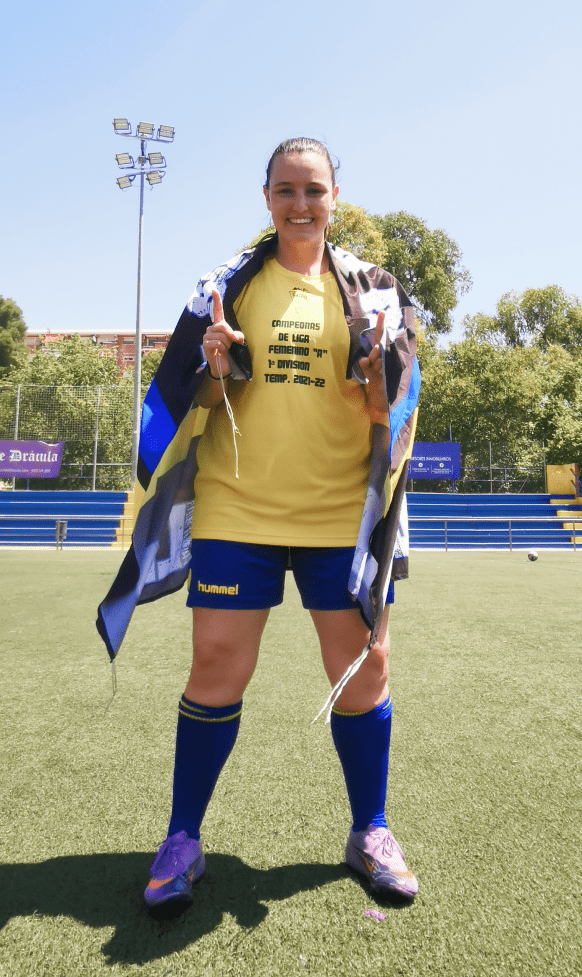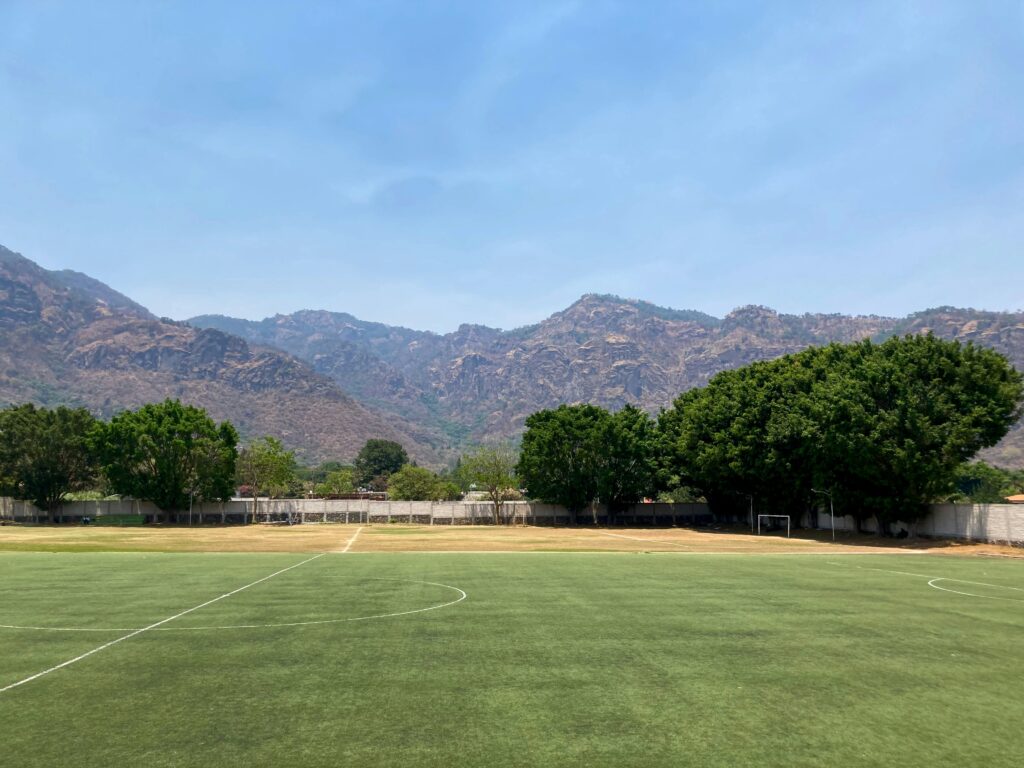Those of us working in football and sport-for-good organizations are facing an unprecedented funding crisis. Securing financial support for programs that use sport as a tool for social impact has never been more challenging. Traditional large-scale national donors no longer have the same resources at their disposal, and an increasing number of Western countries are shifting their funding priorities towards local initiatives rather than those traditionally supported in the Global South.
While these traditional funding streams have long provided crucial support, they come with their own set of challenges—chief among them, sustainability. Many impactful programs that rely on government funding have found themselves at the mercy of shifting political priorities and budget cuts. A change in administration or funding policies can dismantle years of progress, forcing organizations to scramble for alternative resources to avoid resetting their impact to zero.
In response, more successful projects are now striving for financial self-sufficiency. Social entrepreneurship has become a key driver of this shift, with groundbreaking initiatives like Ligue d’Égalité demonstrating how sustainable ecosystems can be built around sport. These models ensure that programs are not only independent of external national policies but are also deeply rooted in their communities, maximizing their long-term impact.
This spirit of innovation has also led to a transformation in the way football academies are perceived. The emergence of Right to Dream reshaped the traditional view of academies, proving that they could be more than just talent factories. Instead, they could provide young players in football-loving countries with not only the dream of playing professionally but also the education and skills to build successful futures beyond the pitch.
Now, in Mozambique, Álvaro García Maldonado is taking this concept even further with Football Academies for Social Impact (FASI). His vision intertwines the presence of a football academy with the holistic development of an entire region, fostering an ecosystem that uplifts communities through sport. Álvaro’s journey is an inspiring one—leaving behind a successful career as a football executive and investor in New York to pursue his dream of using the beautiful game to drive social change in Mozambique. With FASI now poised for its next phase of growth, he shares with us how a football academy can be much more than a place for nurturing talent—it can be a catalyst for transforming lives.
Bonito: Álvaro, Thank you so much for joining us, Im so excited to learn more about how you are combining an elite football academy with social responsibility
Alvaro: So wonderful to be on the Bonito Platform!
Bonito: FASI has its origins in your remarkable personal journey, Alvaro. Could you share how you transitioned from a career in finance to working with Bayern Munich and Red Bull FC in New York, and ultimately taking the leap to establish FASI in Mozambique?
Alvaro: My journey into doing good through football has been a step-by-step process, shaped by a desire to create lasting impact where it is most needed. I started my career in finance and impact investing in developing countries, where I worked on projects aimed at fostering economic growth and social development. This experience exposed me to the challenges many communities face, but also to the incredible potential that well-structured initiatives can unlock. During this time, I developed a strong passion for creating impactful and sustainable business models that could drive meaningful change.
At the same time, I had always been drawn to football—not just as a sport but as a powerful tool for development. I saw firsthand how it could unite communities, provide life-changing opportunities, and serve as an entry point for education and personal growth. That realization made me want to channel my experience in impact-driven initiatives into the football world.
Knowing that I needed to further strengthen my expertise, I pursued a Master’s in Sports Management at Columbia University in New York. This was a key step in equipping myself with the right knowledge and network to build a project like FASI. After completing my studies, I sought firsthand experience in football at the highest level, joining Bayern Munich—one of the most successful clubs in the world. There, I gained insights into elite player development, club management, and community engagement.
I then continued to deepen my understanding of youth development and grassroots football by working with New York Red Bulls, where I became deeply involved in the management of a football entity and the understanding of how to create pathways for players to succeed.
Each of these experiences brought me one step closer to my ultimate goal—launching FASI, a social enterprise that leverages football as a tool for impact, transforming the lives of children in developing countries, starting from Mozambique.

Bonito: Mozambique faces significant socio-economic challenges, including widespread poverty. Can you provide some context about the situation in the country and how it shapes your work?
Alvaro: Mozambique is a country full of talent and potential, but it faces major socio-economic challenges that directly impact the lives of children, especially girls. Poverty is widespread, and access to essential services like education, healthcare, and proper nutrition remains limited for many families.
At FASI, we operate within this reality, understanding that for many of the children we work with, our program is not just about football—it’s a lifeline. 87% of the children we serve only have one warm meal a day, and it’s the one that FASI provides. This highlights the deep nutritional insecurity in the communities we support and how essential our meal program is to their well-being and physical development.
Education is another significant challenge. Only 11%—just one in ten—girls in Mozambique even access secondary education, let alone complete it. Financial barriers, cultural expectations, and lack of access to quality schooling often prevent girls from continuing their education. This is why education is a key pillar at FASI—we aim to ensure that children not only have access to learning but are supported holistically in their growth and future opportunities.
Beyond these structural challenges, we also recognize that gender roles are deeply rooted in many of the communities we work in. Cultural traditions play an essential role in shaping society, and we respect and embrace them while also working to create new opportunities for both girls and women. Our approach is not about imposing change from the outside but about working within the community to expand possibilities, offering young girls the chance to pursue education, develop their talents, and dream bigger.
The impact of this work extends beyond the girls on the pitch—it also affects the women we employ. By creating meaningful job opportunities for female coaches, educators, and staff, we are supporting economic independence, career growth, and hope for a better future for women in the community. These role models are instrumental in inspiring the next generation, demonstrating that there are multiple pathways to success and leadership.
All of this reinforces how necessary FASI’s continuity is for the well-being of these children and the broader community. What we are building goes beyond football—it’s about providing access, breaking barriers, and fostering long-term change in a way that is respectful, collaborative, and deeply impactful. Through our work, we are not only developing talented athletes but also helping to shape a more inclusive, empowered, and hopeful future for all.

Bonito: FASI is an elite training academy, but it also strives to create meaningful social impact. Could you tell us more about how you achieve this balance?
Alvaro: At FASI, we believe that football should be accessible to every child, regardless of their background, gender, or socio-economic status. While we have an excellence program designed for those who aspire to pursue a professional career in the sport, our approach is deeply rooted in inclusivity, accessibility, and equal opportunity.
Through our growing network of satellite academies, we already work with over 3,000 boys and girls across the country, ensuring that children in rural and underserved communities have access to structured football training, education, and health support. These free-to-play academies serve as the foundation of FASI, allowing us to create safe spaces where football becomes more than just a game—it becomes a vehicle for empowerment, education, and improved well-being.
Our “no child left behind” policy ensures that every child who wants to play, learn, and grow with us has a place in our programs. Whether they dream of becoming professional athletes or simply want a structured environment to develop life skills, we make sure that every child benefits from FASI’s three core pillars: Talent Development, Health, and Education.
For those who show the ability and desire to pursue football at a professional level, we offer our excellence program, which provides a higher level of training, mentorship, and career pathways. However, what makes FASI unique is that every single athlete in our excellence program comes from our satellite academies—ensuring that access to elite development is not dictated by financial means but by talent, dedication, and passion.
Sustainability is also at the heart of what we do. By embedding education, life skills training, and well-being initiatives into all aspects of our programs, we are creating a model that does not solely depend on producing professional footballers to be considered a success. Instead, we ensure that every child benefits—whether they pursue a career in football or take their skills and knowledge into other professional paths.
Ultimately, FASI is much more than an elite football academy—we are a platform for opportunity, growth, and social change, ensuring that every child we reach has the support they need to build a brighter future, no matter where they come from.

Bonito: At FASI, you prioritize employing locals in roles and services associated around the academy. How important do you think it is for sports-for-good projects to consider the local ecosystem, ensuring sustainability beyond the lifespan of initial funding?
Alvaro: For FASI, embracing and respecting the traditions and culture of the local communities we become part of is paramount. We believe that our impact can only be meaningful and lasting if it aligns with the values and practices of the communities we serve. By integrating ourselves into the fabric of local life, we foster trust, mutual respect, and genuine partnerships that enhance the sustainability of our initiatives.
We have set self-imposed metrics to ensure our commitment to community integration and empowerment is tangible. At all times, at least 90% of our employees are Mozambican, coming from the very communities we work in, which helps to create a sense of ownership and pride among our team and the broader community. Additionally, we are dedicated to gender equality within our organization, maintaining a minimum of 50% female employees. This approach provides powerful role models for the young girls and boys in our programs and demonstrates our commitment to inclusivity and equal opportunity.
We also believe in investing in the personal and professional growth of our staff. By consistently covering the costs for further education, certifications, and development programs, we empower our employees to advance their careers and expand their knowledge. This not only enhances their contributions to FASI but also equips them for broader opportunities beyond our organization, ensuring that their personal growth continues regardless of FASI’s journey.
Our approach is about more than just employment—it’s about building capacity and fostering long-term resilience within the community. By creating clear growth plans and supporting continuous development, we help our staff envision a better future for themselves and their families. This holistic support extends the impact of FASI well beyond the playing field, contributing to sustainable community development.
In sports-for-good projects, sustainability goes hand-in-hand with local integration. By empowering local staff, respecting cultural norms, and investing in community-driven growth, we ensure that the positive changes initiated by FASI are rooted in the community and can thrive independently in the long run. This commitment to local engagement and empowerment is at the heart of our strategy to create enduring social impact.

Bonito: Reflecting on your journey in football journey, is there a particular moment or experience that profoundly touched you and reinforced your commitment to this work?
Alvaro: There have been many moments that have reaffirmed my commitment to this work, but some of the most powerful have come from meeting the parents of the children we support. Seeing the gratitude in their eyes when they realize that we are providing their children with an opportunity they would have never been able to afford—and doing so purely out of a genuine desire to support and uplift those who don’t have the same opportunities—has been incredibly moving. Many of these parents never imagined that their children could have access to structured football training, proper education, and nutritional support. Knowing that FASI is not just transforming the lives of the children, but also bringing hope and relief to their families, reinforces why we do what we do.
Another defining experience was my time at El Cambio Academy in Uganda and Right to Dream in Ghana. These initiatives have demonstrated that when done right, football academies in underserved communities can serve as powerful engines for social mobility and systemic change. They have produced talent capable of competing at the highest levels of the sport, allowing children who dream of professional careers to pursue them.
At the same time, these projects have empowered boys and girls from rural communities in Africa to graduate from top-tier universities around the world, thanks to the structured support they received from an early age. Many of these young men and women return to their home communities with the tools, education, and confidence to create lasting change—whether by mentoring the next generation, starting businesses, or contributing to the development of local institutions.
These experiences validated FASI’s model and strengthened my belief that we are shaping future leaders, role models, and change-makers. Seeing the tangible impact of such projects has been a reminder that the work we are doing at FASI is about opening doors, redefining possibilities, and creating pathways to a better future for thousands of children and their families.

Bonito: If you could collaborate with any organization in the world to create a project, who would you choose and why? What would make them an ideal partner for FASI?
Alvaro: This is a particularly relevant question at this moment in time, as FASI is actively looking for partners, sponsors, and supporters to ensure our sustainability over time and further elevate the impact of our work. To anyone reading this who feels called to be part of a project like ours—or knows someone who might—we invite you to reach out to us at contact@fasi.world.
Right now, we are in search of an exclusive lead partner in the form of a football club that can support all three of our core pillars—Talent Development, Health, and Education—while also helping us uplift our coaching standards and expand our reach. This partnership will play a critical role in shaping the future of the children we support, particularly those with the dream and ability to pursue a professional career in football.
We are currently in conversations with several clubs, carefully evaluating each potential partner to ensure full alignment with our values, mission, and long-term vision. While time is of the essence—and we aim to finalize this opportunity within the first quarter of the year—we are also taking a granular and deliberate approach to selecting the right club. It is crucial for us that any partner we bring on board respects and aligns with FASI’s mission and objectives beyond their own, prioritizing the well-being and development of the children we serve. We are looking for a club that, within their area of expertise, can help maximize the chances of those with the dream of becoming professional footballers to reach the highest levels of the game through structured pathways and exposure.
At the same time, this partnership is also a highly attractive opportunity for the club itself, and the organizations we are speaking with fully recognize the value in this collaboration. The proposal we have put forward presents a win-win scenario for all involved—FASI, the club, and most importantly, the children whose lives will be transformed. The club that joins us as our exclusive lead partner will gain a unique and meaningful presence in one of the most talent-rich regions of the world, positioning itself as a key player in the development of elite footballers in Africa. Beyond talent identification and player development, the club will be part of a movement that is driving real social impact, reinforcing its global reputation as a force for good in football.
Beyond this exclusive club partnership, we also extend an open invitation to corporations, foundations, and individuals who want to be part of FASI’s journey. Whether through funding, resources, expertise, or other forms of collaboration, there are many ways to contribute to our transformative mission. We are building something that goes beyond football, creating opportunities that change lives, and we welcome those who share our vision to join us in making a lasting impact.
For those who feel inspired to collaborate, please reach out—we would love to explore ways to work together.

Bonito: At Bonito, we believe every grassroots football coach is also a social impact practitioner. Could you highlight one of your Mozambican coaches at FASI who embodies this philosophy and share what makes them stand out?
Alvaro: One of the most inspiring figures at FASI is Coach Felismina Moiane, known as Coach Djime. She has been with us for almost a year, serving as both a football coach and the Coordinator of FASI’s Female Division, playing a pivotal role in developing the next generation of female footballers in Mozambique.
Coach Djime embodies everything FASI stands for—commitment, excellence, and a deep passion for using football as a tool for empowerment. She is a professional first-division football player while also pursuing a degree in Sports Science and Physical Education at IMEDE (the Mozambican National Institute for Sports). Her ability to balance her academic pursuits, athletic career, and coaching responsibilities makes her a powerful role model for the young girls in our program.
At FASI, we are committed to investing in the personal and professional growth of our staff, and Coach Djime is a great example of this. As part of our commitment to capacity-building and long-term development, we have covered the costs for her to obtain her CAF (African Football Confederation) coaching certification, ensuring she continues to grow as a football professional.
Her impact extends far beyond the pitch. She is a living example that with the right opportunities, dedication, and guidance, young girls in Mozambique can pursue both education and football at a high level. She leads by example, showing our student-athletes that success is achievable both on and off the field.
At FASI, we are incredibly fortunate to have local leaders like Coach Djime, whose presence not only elevates the level of football development in our academy but also inspires a new generation of young girls to believe in their potential. She is a testament to our commitment to empowering women in football, providing opportunities for personal growth, and ensuring that our impact is driven by talented Mozambican professionals from within the community.
Coach Djime represents the heart of what we do at FASI—creating pathways for success, fostering role models, and making football a force for real, lasting change.
Bonito: Álvaro, thanks so much for joining us today, you are really a shining example of dedication in the football for good field! And to all those clubs out there, contact Alvaro right away to both help with the social impact of Mozambique but also to perhaps find the next Mozambiquan Messi or Ronaldo!
Alvaro: Thanks so much for having me and we look forward to hosting Bonito in Mozambique some day!
BIO
Name: Álvaro García Maldonado
Organization (s): FASI – Football Academies for Social Impact
Role: Founder & CEO
Favorite Football (or sport) for good organization apart from your own: El Cambio Academy
Favorite Football Club: Real Madrid
Website: https://fasi.world/
LinkedIn: https://www.linkedin.com/company/fasi-footballacademiesforsocialimpact/
Instagram: https://www.instagram.com/fasi.impact



























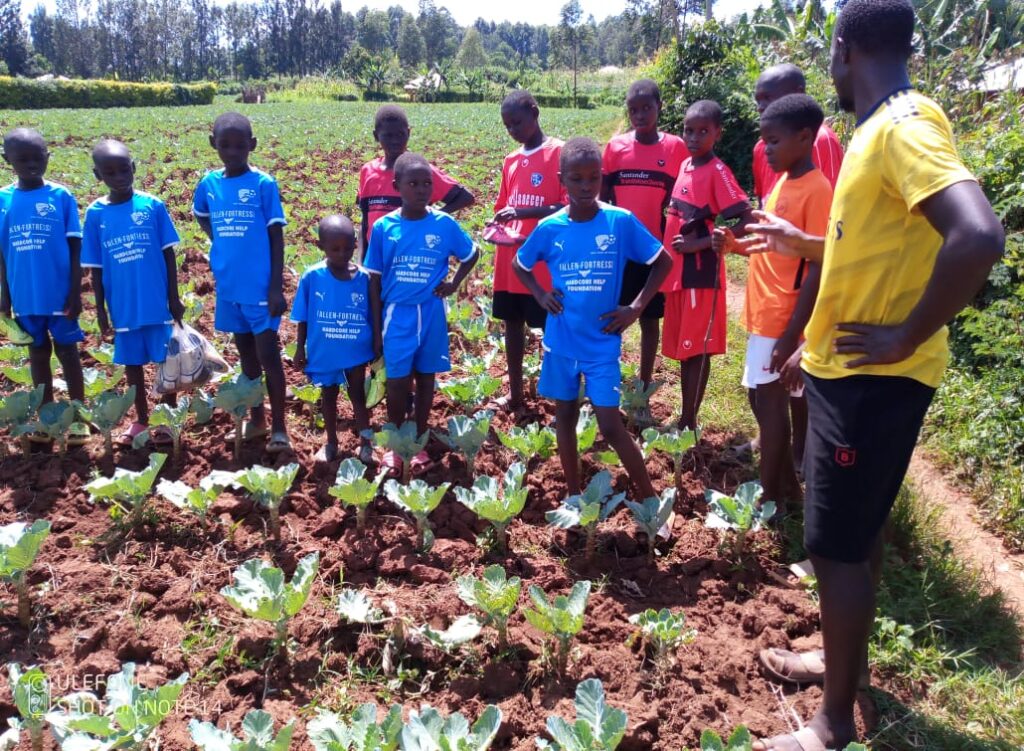
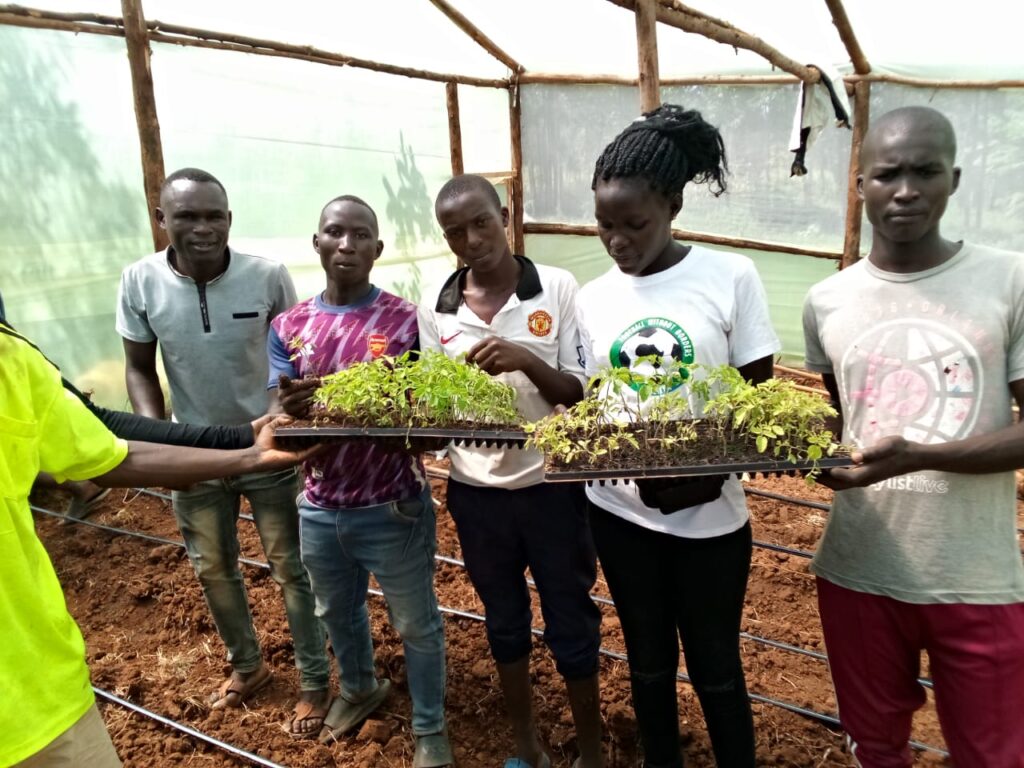
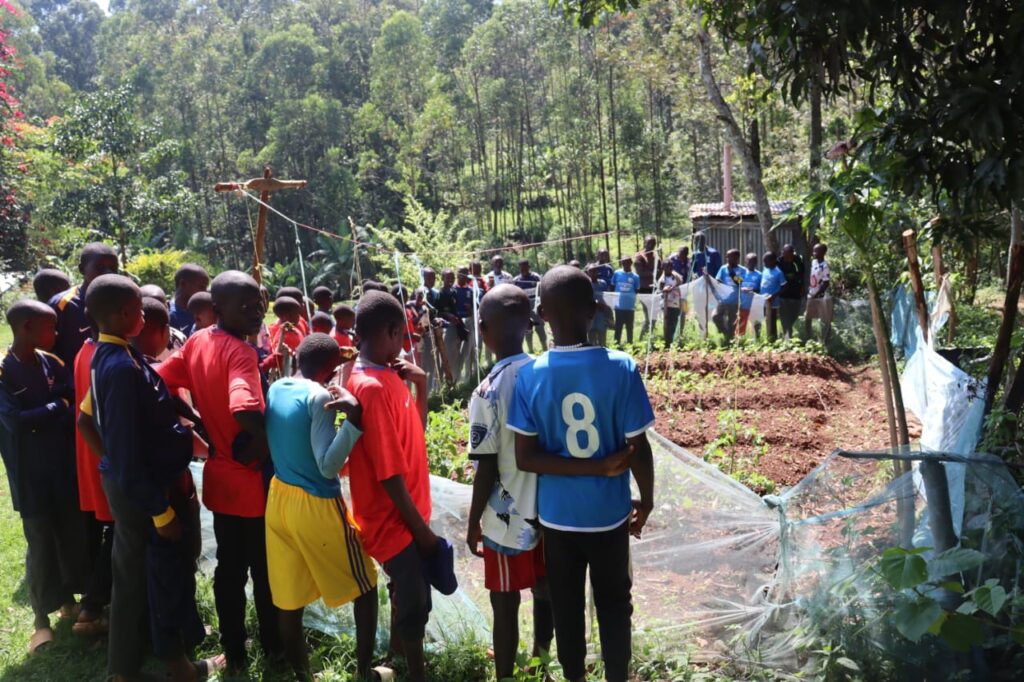
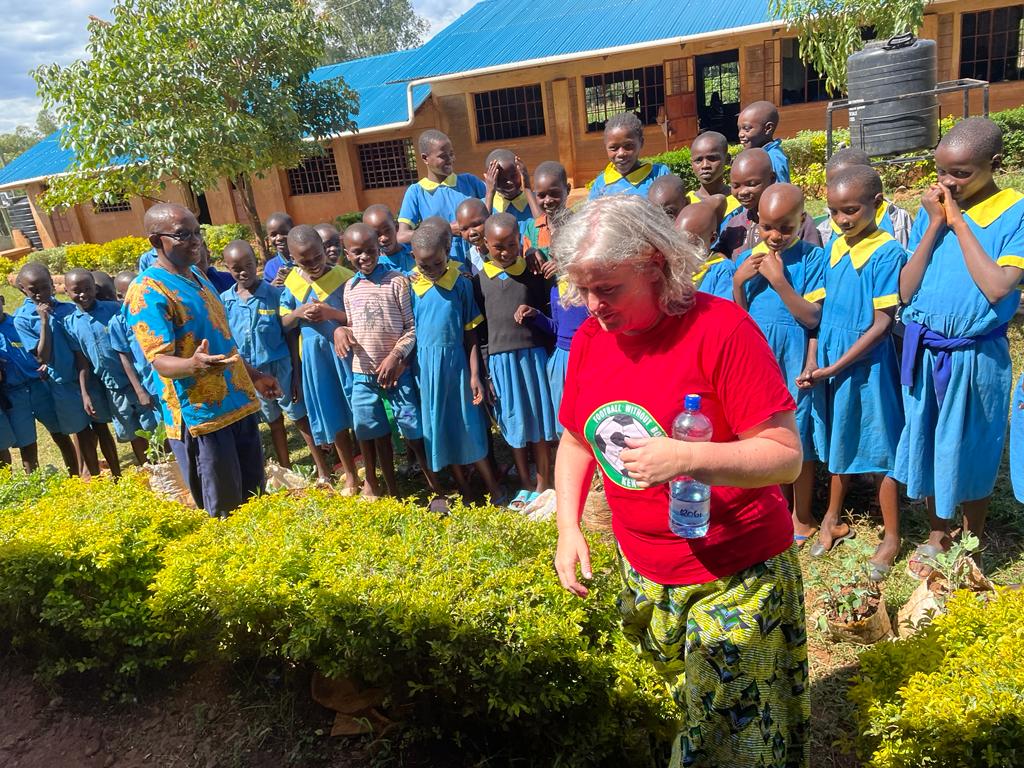
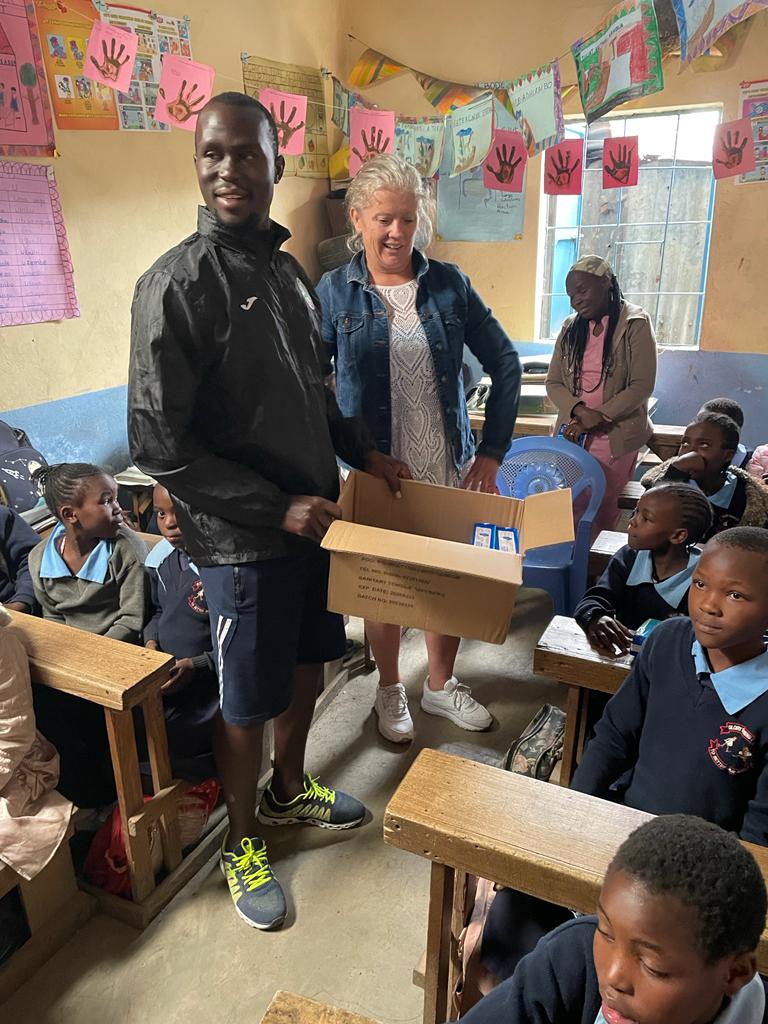

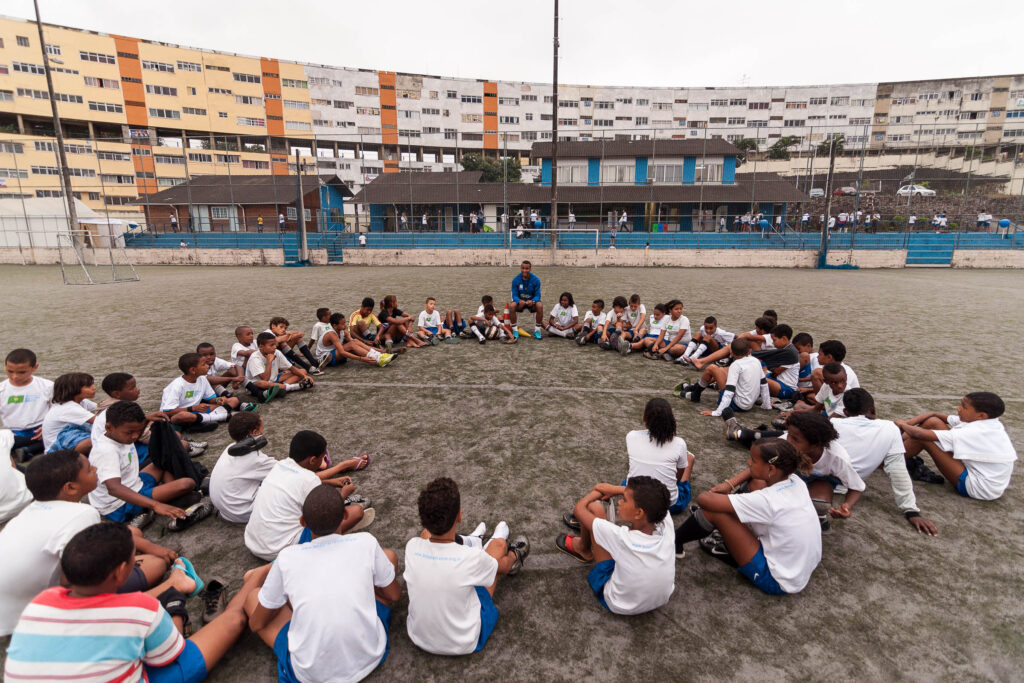
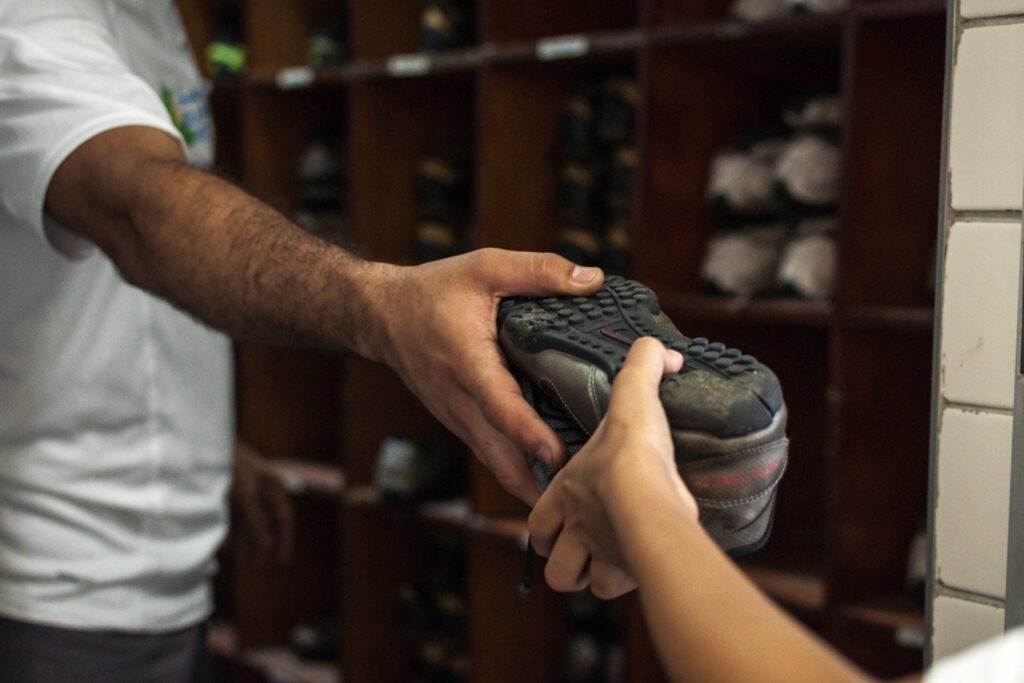
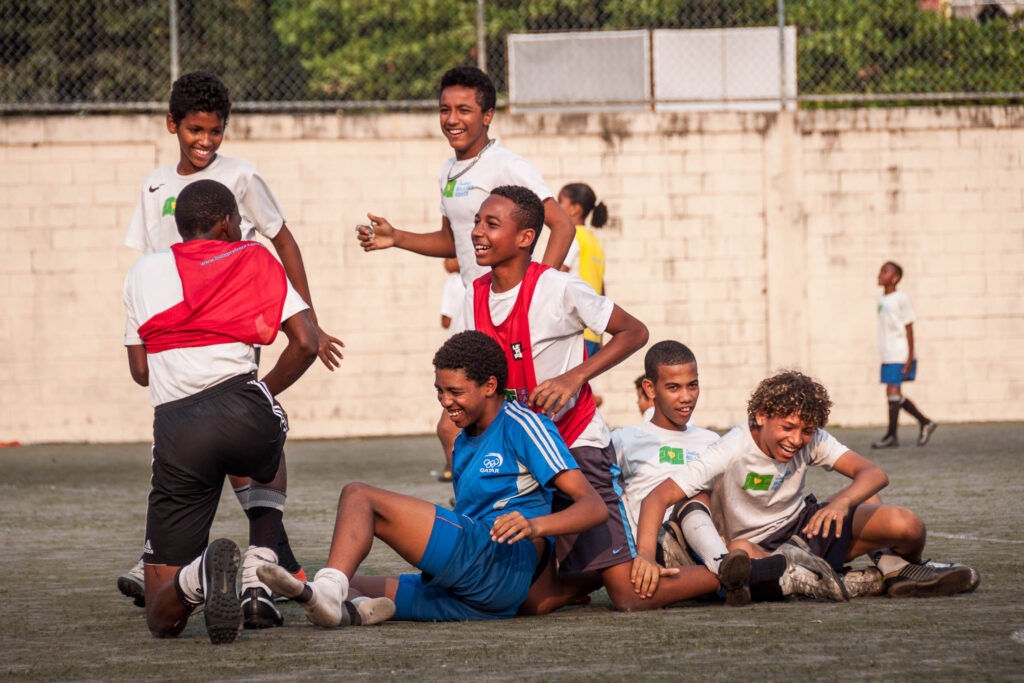
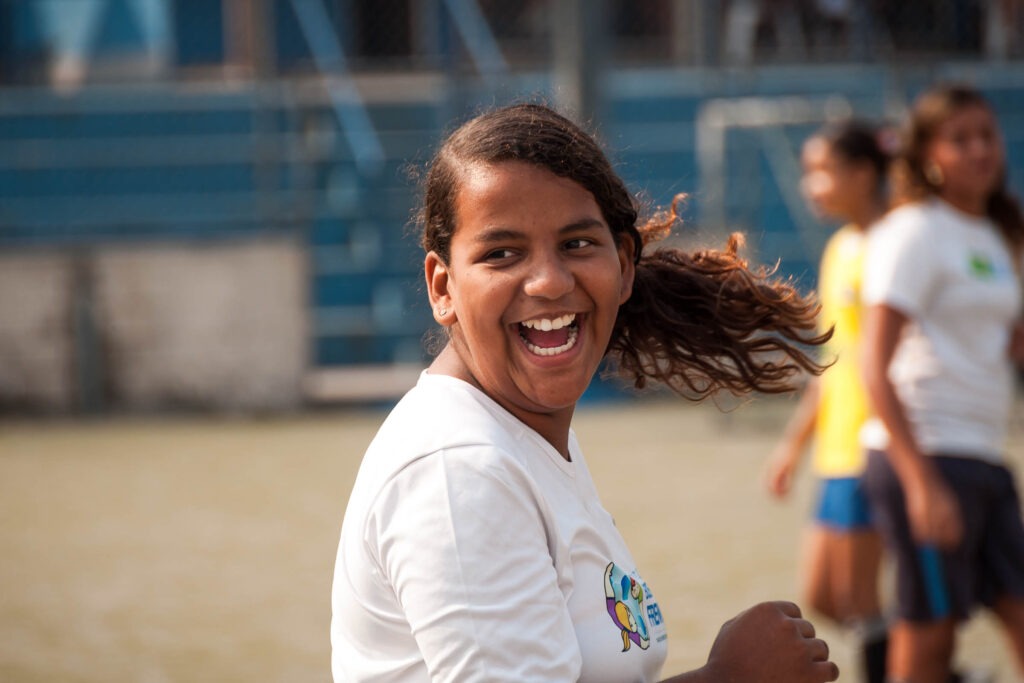

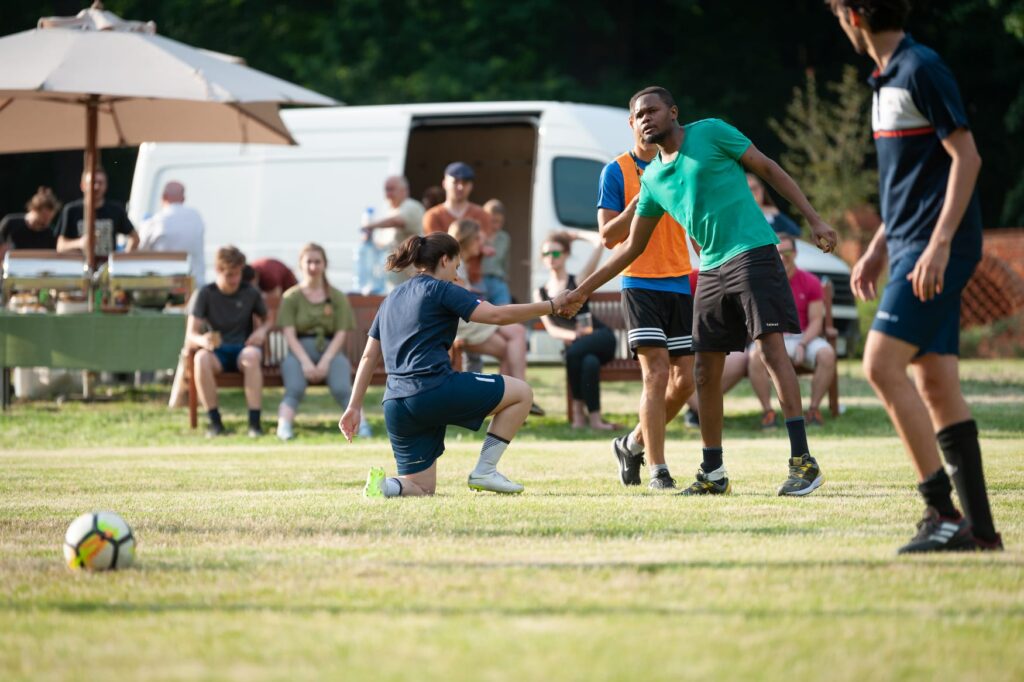
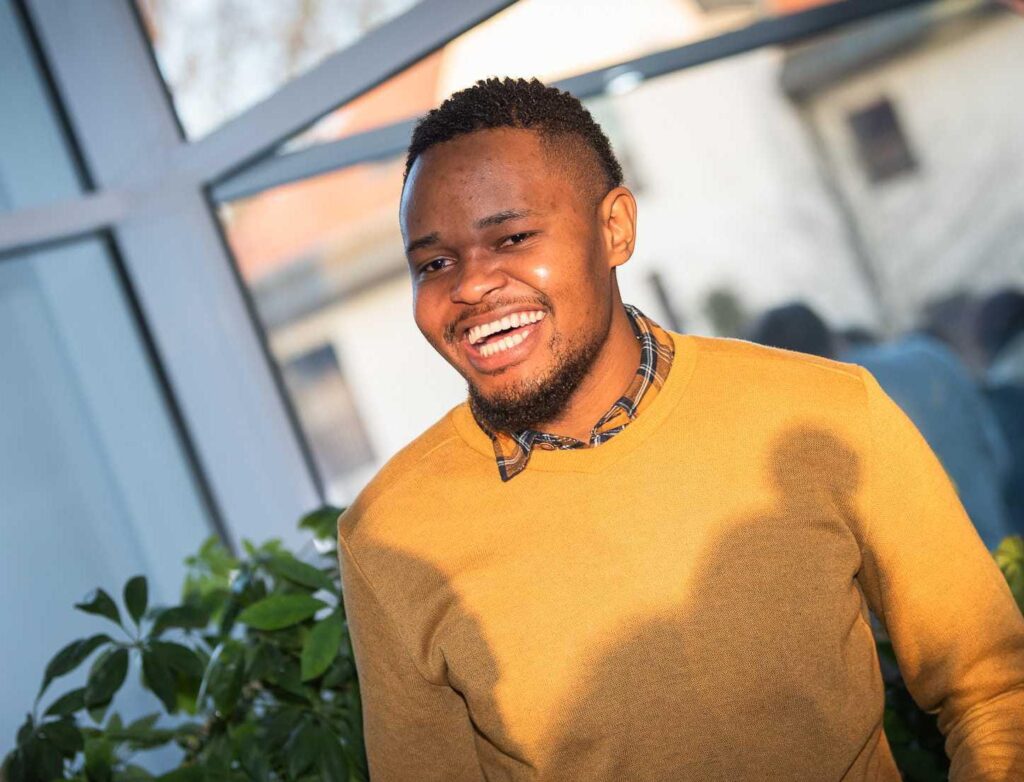


 Bonito: Djibril, thank you so much for joining us on this International Migrants Day to speak about your wonderful program. Can you share your personal journey and how did your passion for football inspire you to create the I Speak Football program?
Bonito: Djibril, thank you so much for joining us on this International Migrants Day to speak about your wonderful program. Can you share your personal journey and how did your passion for football inspire you to create the I Speak Football program?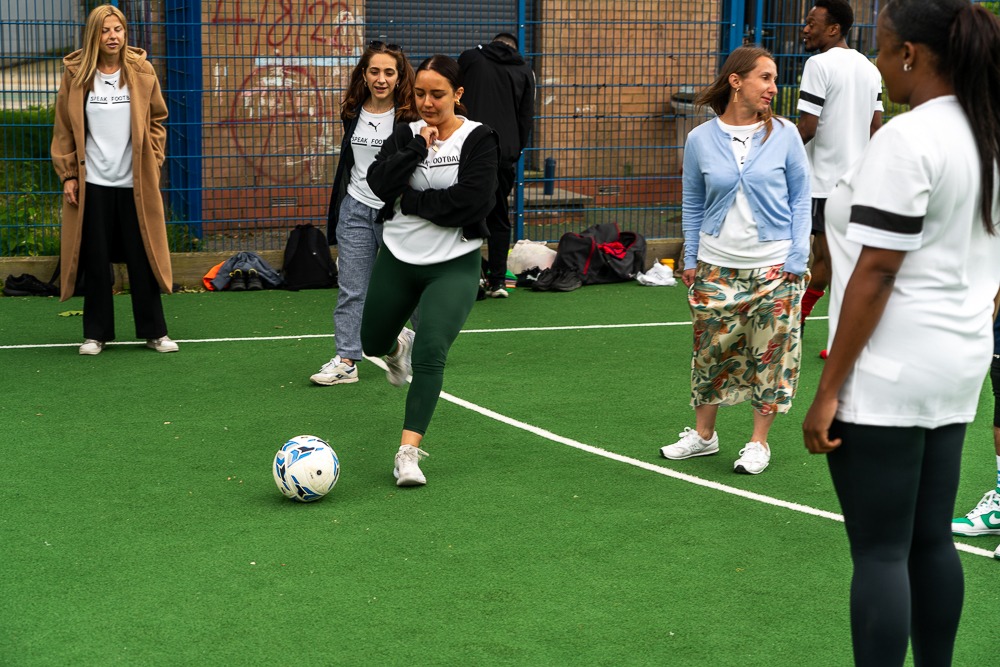 Bonito: How important is it for newcomers to have a safe and productive environment to learn the local language of their new country?
Bonito: How important is it for newcomers to have a safe and productive environment to learn the local language of their new country?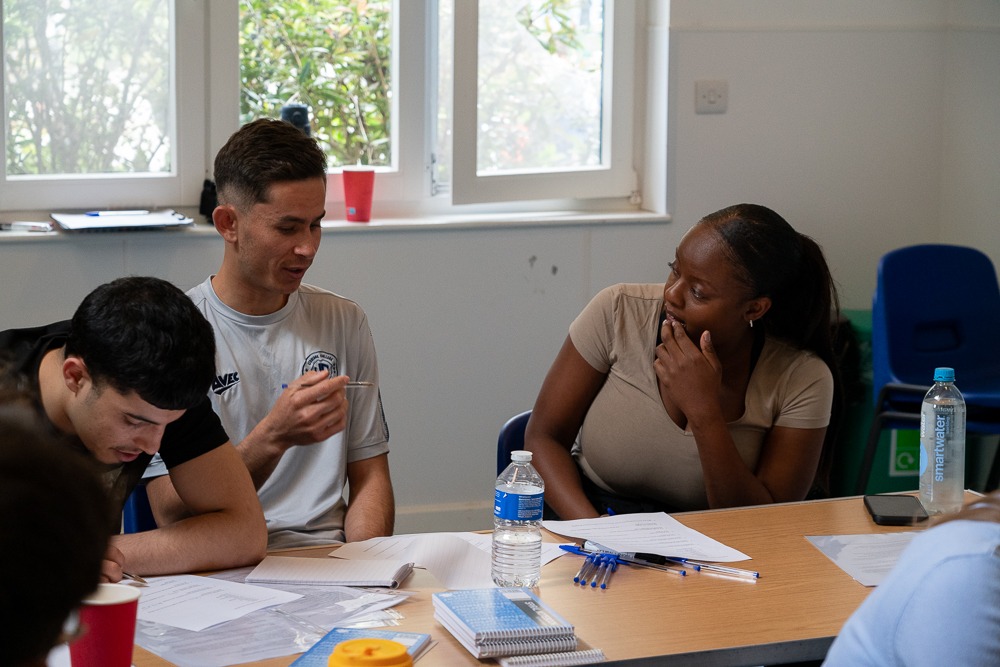 Bonito: The journey that many immigrants face in moving to their new countries often presents a tremendous strain on mental health- how does football help to improve that and to build further resilience going forward?
Bonito: The journey that many immigrants face in moving to their new countries often presents a tremendous strain on mental health- how does football help to improve that and to build further resilience going forward?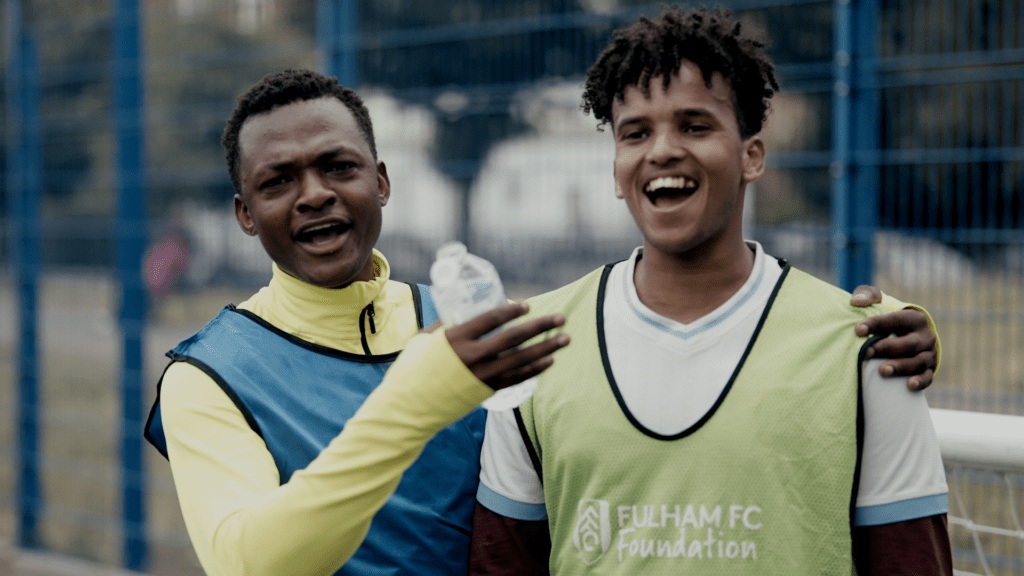 Bonito: Reflecting on your journey in football, is there a particular moment or experience that profoundly touched you and reinforced your commitment to this work?
Bonito: Reflecting on your journey in football, is there a particular moment or experience that profoundly touched you and reinforced your commitment to this work?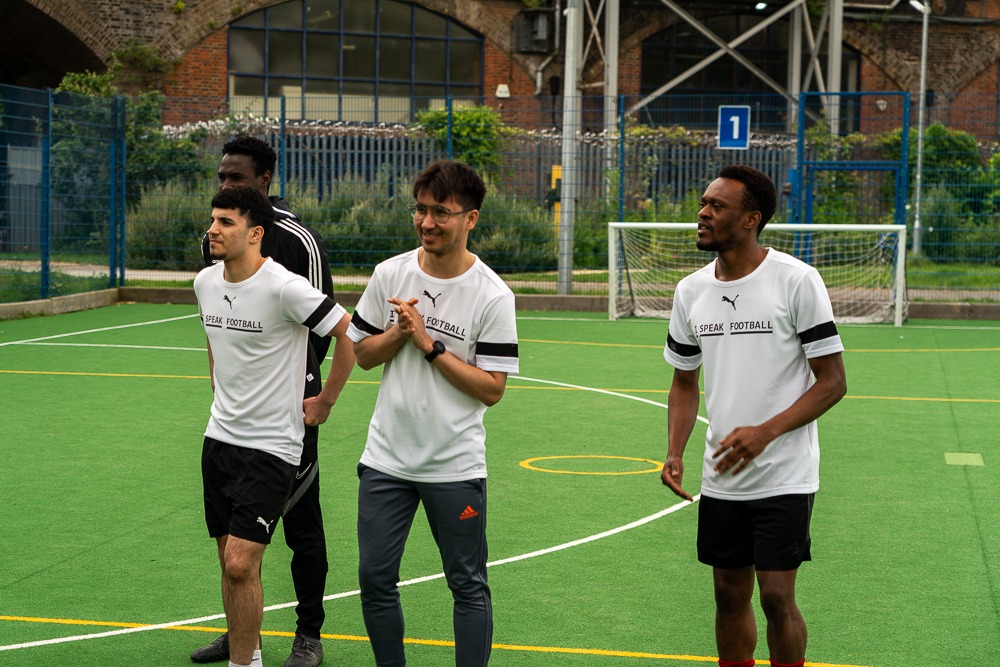 Bonito: How important are partnerships to a program like yours? local communities, mental health experts, language teachers- it feels like you need to have a really wide ranging team?
Bonito: How important are partnerships to a program like yours? local communities, mental health experts, language teachers- it feels like you need to have a really wide ranging team?